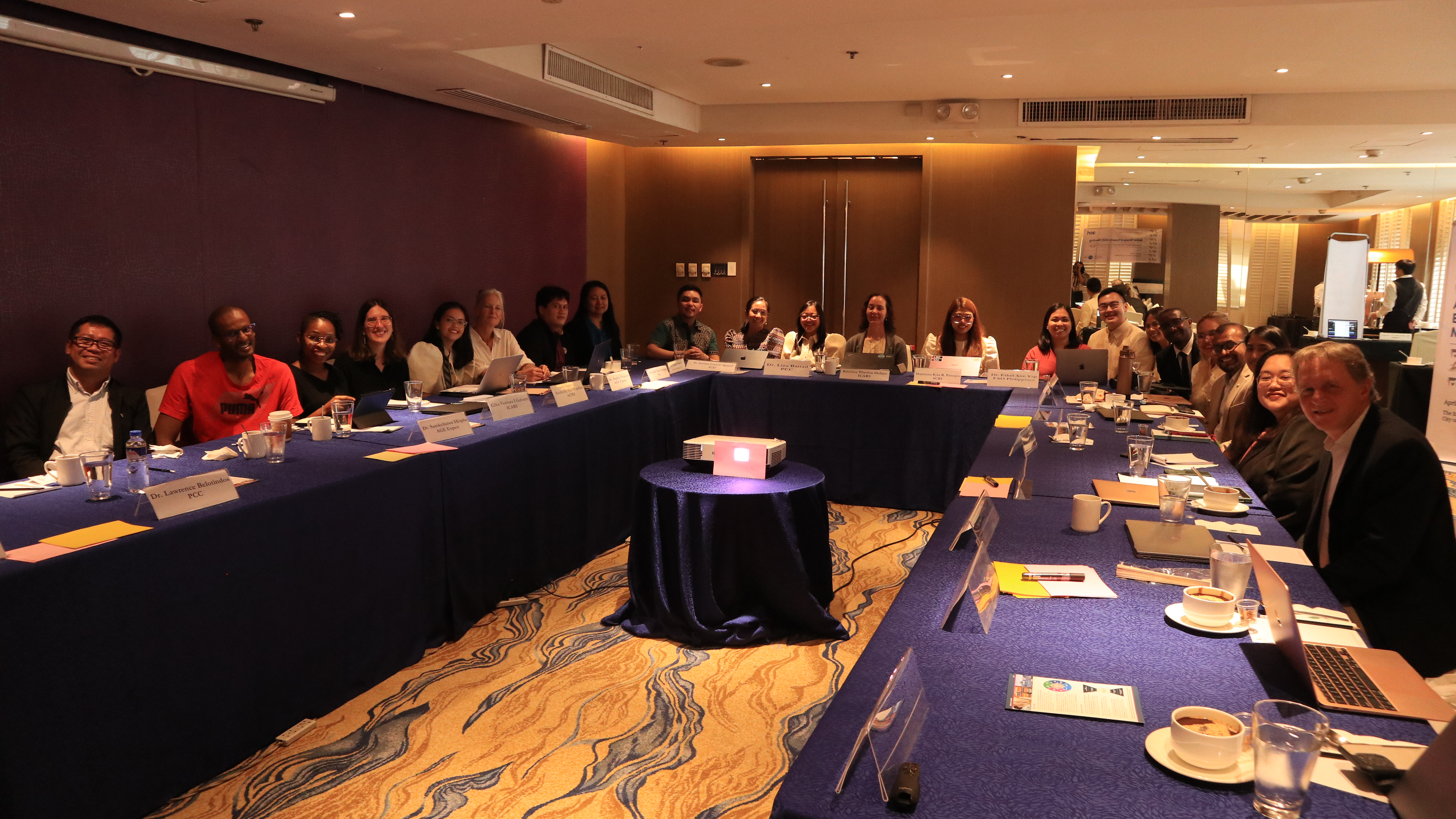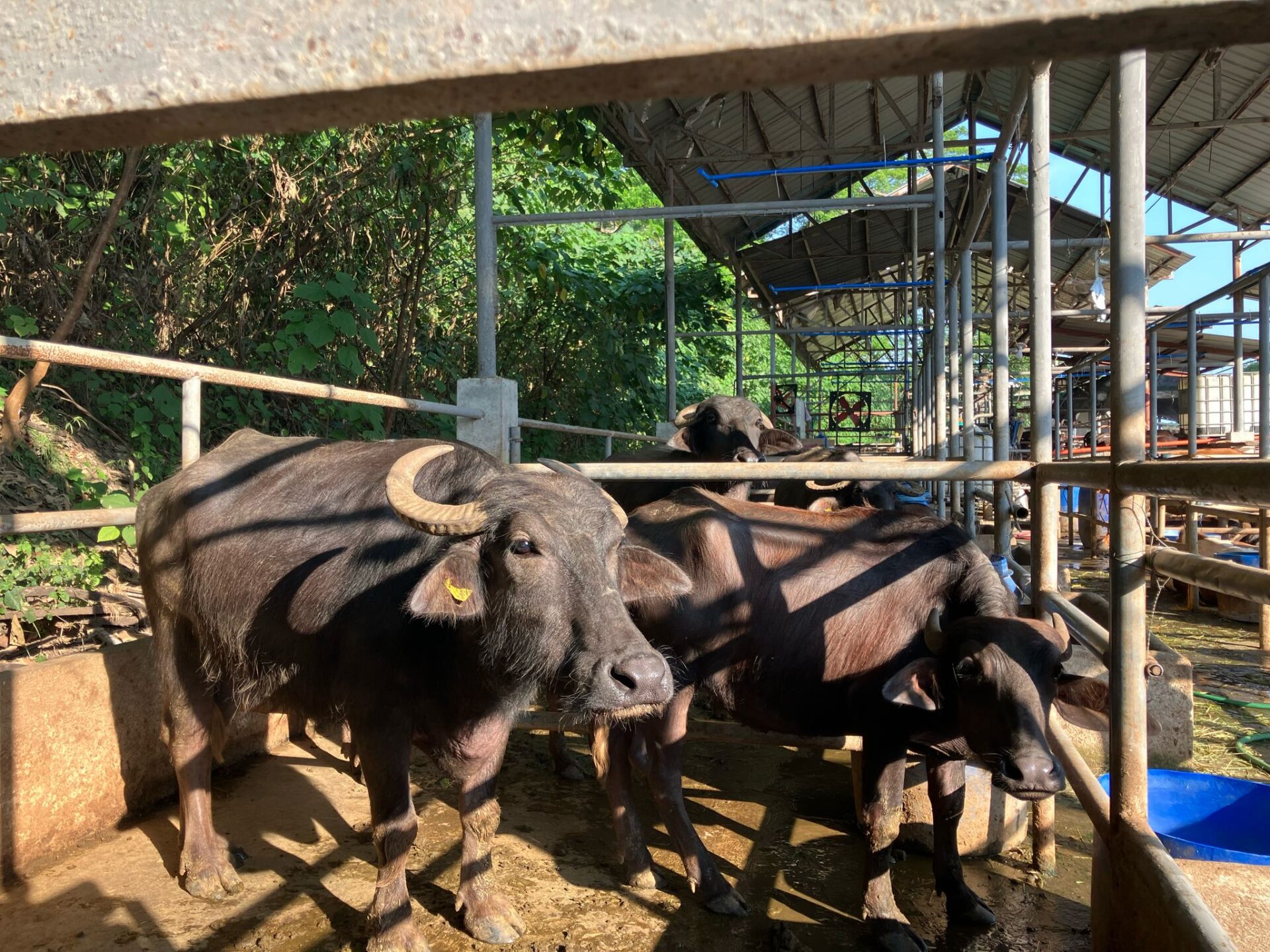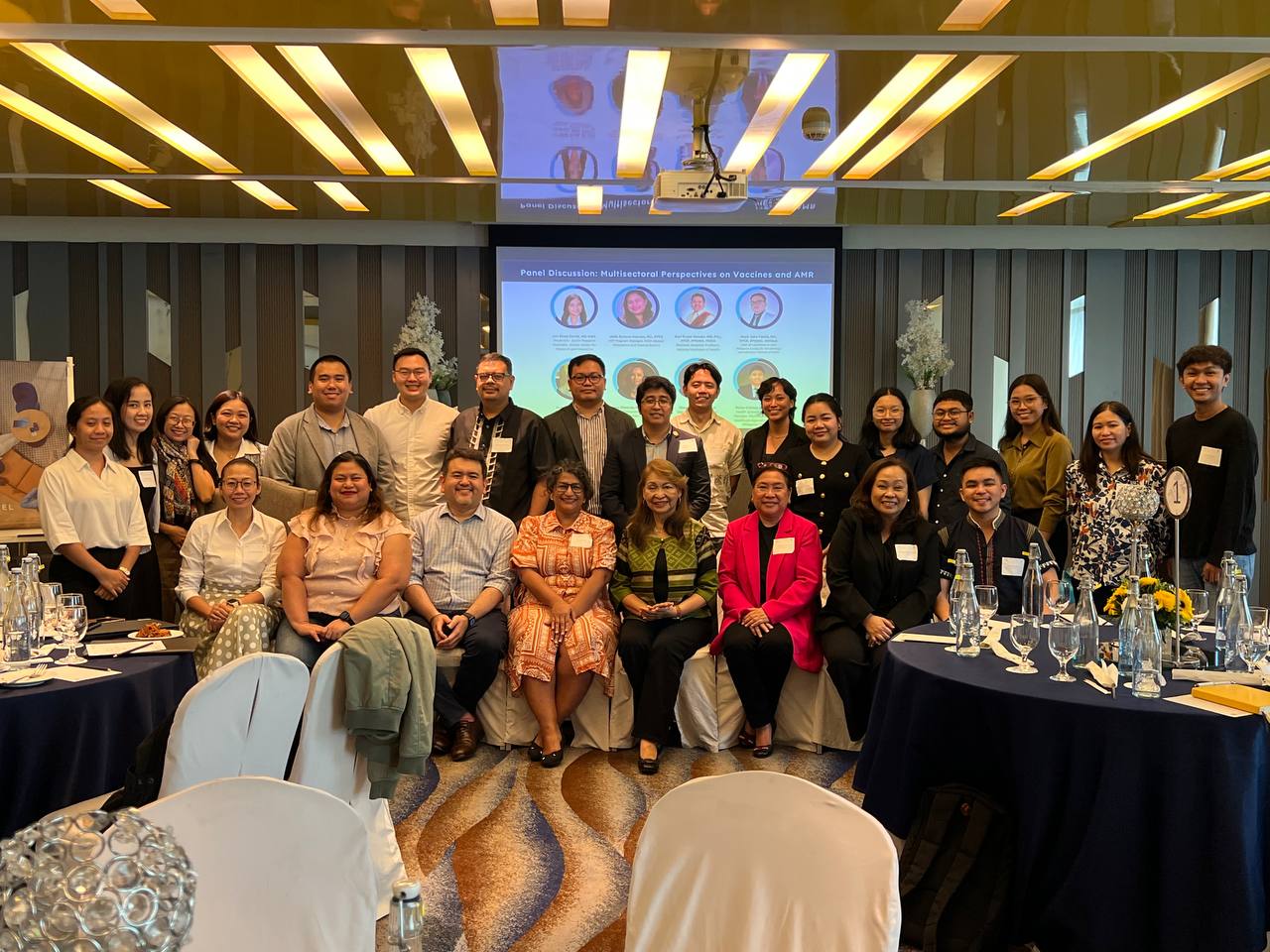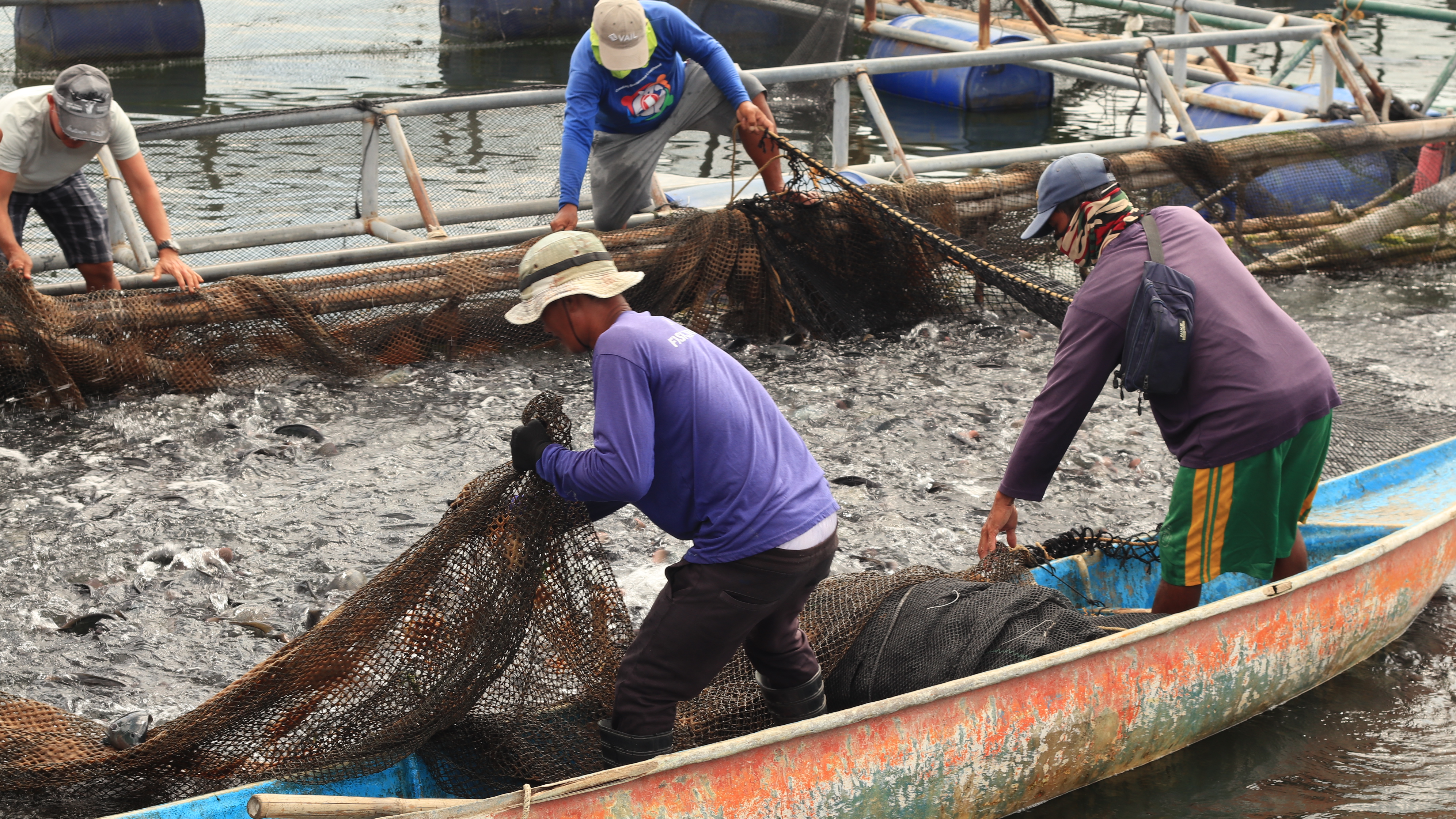
ACRI and ICARS Lead Expert Meeting to Tackle Climate and AMR Challenges in LMICs
The Ateneo Center for Research and Innovation (ACRI), in collaboration with the International Centre for Antimicrobial Resistance Solutions (ICARS), recently hosted a three-day Action Group of Experts (AGE) Meeting. This gathering brought together leading researchers from the fields of One Health, agriculture, and aquaculture to discuss urgent research priorities at the intersection of climate change and antimicrobial resistance (AMR) in low- and middle-income countries (LMICs). Philippine institutions also played a significant role in the discussions, including the Bureau of Fisheries and Aquatic Resources (BFAR), the National Fisheries Research and Development Institute (NFRDI), the Food and Agriculture Organization (FAO) Philippines, the Philippine Carabao Center (PCC), and the Bureau of Animal Industry (BAI).
ACRI shared early insights from its ongoing scoping review, highlighting how climate stressors—such as rising temperatures, extreme weather events, and seasonal unpredictability—are exacerbating disease risks in animal production systems. This, in turn, is leading to increased antibiotic use. In LMICs, where veterinary oversight and climate-smart technologies are often limited, these trends are amplifying the risk of AMR, particularly in the agriculture and aquaculture sectors.
The findings from ACRI played a pivotal role in helping ICARS finalize the research focus for a Request for Proposals, launched on May 15, 2025. This funding initiative aims to support high-impact projects that bridge climate resilience and AMR mitigation in LMICs.
AGE Meeting Highlights
- Day 1:
Field visits to the BFAR Region 4A Office and the UPLB Dairy Training and Research Institute (UPLB-DTRI) offered firsthand insights into the climate-AMR challenges in local aquaculture and livestock systems.
“The extreme heat directly affects aquaculture production—it influences fish health, growth, and survival,” shared Melanie Briones, Senior Aquaculturist from BFAR. Staff from UPLB-DTRI also echoed these concerns, observing similar impacts in dairy operations.

- Day 2:
ACRI presented its findings, followed by a panel discussion with AGE members, ICARS representatives, and stakeholders from agriculture, health, and environment sectors.
“This is still a very under-researched area,” emphasized Dr. Kristina Osbjer, Director of Science at ICARS. “We need to better understand the shared drivers of AMR and climate change, strengthen national-level data systems, and explore integrated solutions that can be tailored for specific country contexts.”
“Climate change is easy to explain, but when you bring AMR into the mix, we need to double down on education,” said Dr. Samkelisiwe Hlophe from the Water Research Commission, South Africa.
“We already have tools and platforms that provide climate information,” noted Dr. Sophie Fridman, UK-based aquaculture consultant. “The real challenge is connecting the dots—bringing this information together, repackaging policies, and ensuring people on the ground understand how weather and disease risks are intertwined.”
- Day 3:
AGE experts honed in on the key parameters for ICARS’ May 15 funding call. They agreed that funded projects should:- Test real-world interventions on climate-AMR links and map pathways for scaling up successful innovations
- Integrate AMR into existing climate studies, ensure robust data sharing, and work across lab and field settings
- Build multidisciplinary teams—including policymakers, farmers, and the private sector—and remain flexible in geographic and production focus
They also called for tailored outreach—research dashboards, farmer videos, and veterinary e-modules—with sustainable hosting and regular updates.
“Policymakers, industry, researchers, and farmers work in silos. We need distinct strategies for each group and a shared language, coordinated with FAO, WOAH, and WHO, to truly integrate climate and AMR efforts,” said Dr. David Verner-Jeffreys (CGIAR WorldFish).
“Climate change and AMR are still treated separately, but we all agree that an intersectoral, collaborative approach is needed,” added Dr. Hazel Anne Fajardo, Project Coordinator. “We need to organize mandates—who collects the data, who analyzes it, and who manages the dashboards and early warning systems. As we craft policies, it’s crucial to clearly delineate the roles.”
This collaborative meeting reflects the growing momentum among research institutions, government agencies, and international partners to work across sectors and disciplines in addressing the dual challenges of climate change and AMR. By bringing together diverse expertise and local insights, the AGE Meeting laid the groundwork for more targeted, impactful, and inclusive research efforts—paving the way for stronger, science-driven solutions in LMICs and beyond.
-

The Unseen Link: Vaccines and Antimicrobial Resistance in the Philippine Context
Antimicrobial resistance is already claiming lives, and the global pipeline for new antibiotics is shrinking. In August 2025, experts gathered to explore a critical question: Can vaccines become a frontline weapon against AMR? The science is clear—by preventing infections, vaccines reduce antibiotic use and slow resistance. But translating this into action means confronting data gaps, political barriers, and financing challenges. As one expert noted: "When we vaccinate, we reduce the frequency of these diseases. That means fewer antibiotics—used and misused." With no country in the Global South yet integrating vaccines systematically into AMR strategies, the Philippines has a chance to lead—if stakeholders can move from consensus to action.
-

Advancing vaccine uptake to mitigate antimicrobial resistance (AMR) in low and middle-income countries of South or South-East Asia
This project explores how strengthening vaccine uptake can serve as a key strategy to mitigate antimicrobial resistance (AMR) in the Philippines and across South and South-East Asia. By reducing the burden of vaccine-preventable diseases and the unnecessary use of antibiotics, the study aims to provide actionable recommendations for national and institutional stakeholders to better integrate vaccination initiatives into AMR control efforts, ultimately contributing to stronger, more resilient health systems.

